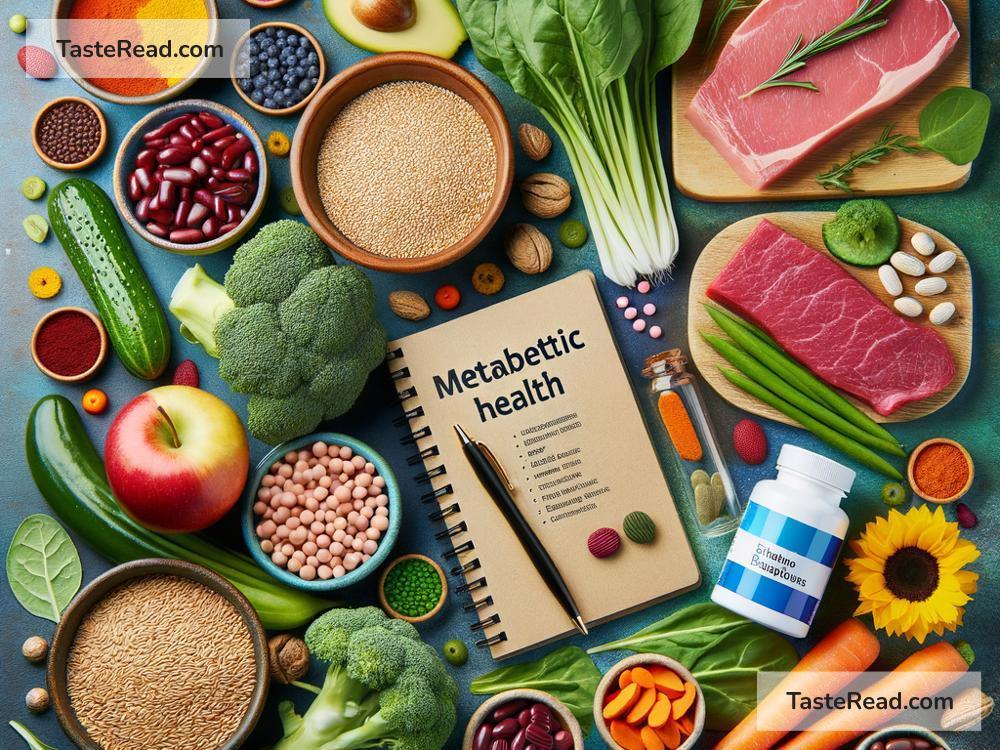The Role of Vitamin B141 in Metabolic Health: What You Need to Know
When we hear about vitamins, we often think of familiar names like Vitamin C, Vitamin D, or Vitamin B12. But what if I told you there’s something called Vitamin B141? You’d probably scratch your head and wonder what it is, or if it even exists. Here’s the truth: Vitamin B141 isn’t a commonly recognized vitamin like the others in the vitamin B family. In fact, it’s likely a misunderstanding or a non-existent term. However, this blog will explore metabolic health, the real role of the vitamin B complex, and why keeping our metabolism healthy matters.
Let’s dive into the basics of metabolic health, what vitamins do for our body, and how you can take better care of yourself.
Understanding Metabolism
Metabolism refers to the complex chemical processes in our bodies that convert food and drink into energy. This energy is essential because it powers everything we do—from breathing and moving to thinking and growing. Metabolism also helps regulate blood sugar, balances hormone levels, and manages weight.
If your metabolism isn’t functioning well, you may feel tired, gain weight, or even develop metabolic conditions like diabetes, high cholesterol, or heart disease. This is why metabolic health is so important.
The Role of Vitamins in Metabolic Health
Vitamins are essential nutrients that our bodies need to perform various functions, including maintaining a healthy metabolism. One key group of vitamins that plays a big part in metabolic health is the B vitamins. These include:
- Vitamin B1 (Thiamine) – Helps turn carbohydrates into usable energy.
- Vitamin B2 (Riboflavin) – Breaks down fats, drugs, and proteins.
- Vitamin B3 (Niacin) – Supports energy release and cholesterol levels.
- Vitamin B5 (Pantothenic Acid) – Aids in producing energy and making hormones.
- Vitamin B6 (Pyridoxine) – Helps your body use and store energy from proteins and sugars.
- Vitamin B7 (Biotin) – Supports the metabolism of fats and carbohydrates.
- Vitamin B9 (Folate) – Vital for cell growth and making DNA.
- Vitamin B12 (Cobalamin) – Keeps nerve cells healthy and helps produce red blood cells.
Each of these vitamins has a specific role in helping your body derive energy from food and ensuring metabolic processes run smoothly.
Wait, What About Vitamin B141?
Here’s where things get interesting. Vitamin B141 isn’t an officially recognized vitamin. Sometimes confusion arises because researchers or the internet mislabel substances or create new terms. What we do know is that there’s no credible scientific evidence for the existence of a Vitamin B141. If you’ve come across this term, it might be a misunderstanding or even misinformation.
What truly matters, though, is the role of the existing B vitamins in your body. They’re the ones scientifically proven to help keep your metabolism in check. It’s best not to rely on something like “Vitamin B141,” which may not have any real basis in science.
How B Vitamins Affect Metabolic Health
The B vitamins work together to keep the body’s metabolic system running efficiently. For example, Vitamin B1 (Thiamine) and Vitamin B12 (Cobalamin) are important for energy production and nerve health. If you lack these vitamins, you may feel extreme fatigue, poor memory, or even nerve problems.
A deficiency in B vitamins can slow down your body’s ability to convert food into energy, which can affect your overall health. Most people get enough B vitamins from the foods they eat, such as lean meats, eggs, dairy, nuts, and leafy greens. However, some people, like vegetarians, vegans, or older adults, may need supplements to meet their vitamin needs.
Symptoms of Poor Metabolic Health
If your metabolic system is struggling, you may notice symptoms like:
- Fatigue or low energy
- Unexplained weight gain
- Difficulty concentrating
- Muscle weakness
- Constant hunger or irregular appetite
- Trouble sleeping
These symptoms can often be connected to vitamin deficiencies, especially in the B vitamin family. It’s always a good idea to talk to your doctor if you experience these issues regularly.
How to Support Your Metabolic Health
The good news is that supporting your metabolism is entirely possible with a healthy lifestyle! Here are some tips:
-
Eat Nutrient-rich Foods – Focus on whole foods like fruits, vegetables, grains, lean protein, and healthy fats. These contain the B vitamins needed for optimal metabolic health.
-
Stay Active – Exercise helps your metabolism function optimally. Aim for 30 minutes of physical activity each day.
-
Stay Hydrated – Water is critical for all body functions, including metabolism.
-
Get Regular Check-ups – If you’re worried about deficiencies, ask your doctor about tests for vitamin levels or metabolic health.
-
Consider Supplements – If necessary, a B vitamin supplement can support your metabolism. But always consult your doctor before starting supplements.
Final Thoughts
While terms like “Vitamin B141” may sound fancy or exciting, the truth is, they don’t have scientific backing. Instead, focus on the proven benefits of the real vitamin B complex family. These vitamins play a key role in keeping your metabolism—and your entire body—functioning properly.
If you eat a healthy diet, stay active, and stay informed about the nutrients your body needs, you’ll be on the right track to improving your metabolic health. Keeping things simple, balanced, and science-backed is the best way forward!


